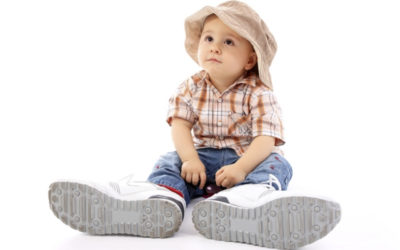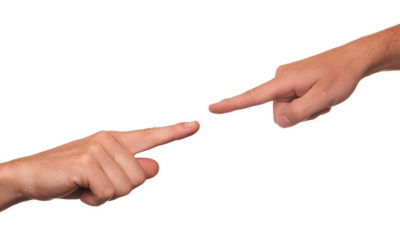Jung said of the parent-child relationship: “Nothing exerts a stronger psychic effect upon the human environment, and especially upon children, than the life which the parents have not lived.” Jung understood that parents could unconsciously compel children to fulfill parental dreams or compensate for disappointments.
CONFRONTING SHADOW: The Work of Self-Discovery
Sep 30, 2021
Psychotherapy is essentially the work of making shadow conscious—all that we have not discerned then disowned, or projected onto others. We seldom welcome shadow, for it is marked by emotions and motivations that deflate, disturb, and dethrone ego. From family scuffles to political hostilities and outright war, we most often meet our shadow in others. Its presence is signaled by a strong urge to take action, with feelings ranging from judgment to antagonism, from pity to self-sacrifice, and from obsession to disgust. If we have the courage to face and relate to the inner world of another, we experience and expand our own inner world. Shadow is the dark doorway to renewal and development, creativity and compassion. Jung said, “One does not become enlightened by imagining figures of light, but by making the darkness conscious.”
SELF-REFLECTION: What Was I Thinking?
Sep 23, 2021
Jung says, “There is another instinct, different from the drive to activity and so far as we know specifically human, which might be called the reflective instinct.” Self-reflection is correlated with consciousness and is arguably humankind’s unique and essential competency: a meta-cognitive capacity that is aware of its own awareness.
THE MUSIC OF METAPHOR: Healing in Therapy & Life
Aug 26, 2021
To understand and engage another’s internal world requires language which speaks in harmony with the unconscious. Metaphor speaks beyond ego and traverses the realms between past and present, bodily sensation and feeling, conscious and unconscious. It infuses lived experience with connection and creates shared space for healing.
SPLITTING: Understanding What Divides Us
Aug 19, 2021
We seem hard-wired to split the world into polarities: right/wrong, either/or, victory/defeat, Democrat/Republican. Infants and toddlers have not yet achieved the developmental capacity for complexity; they are believed to split their feelings toward caretakers into “good” and “bad,” depending on whether their needs are being met in the moment.
The Wounded Healer
Aug 12, 2021
Jung’s dialectical process, we work together to discover “the curative powers in the patient’s own nature.” Just as every wounded patient has inner health, every healer has an inner wound. If consciously known and borne, the analyst’s wound serves the healing process.
The Cosmic Meaning of Consciousness
Jul 22, 2021
In Answer to Job, Jung states, “Whoever knows God has an effect on him.” If, as Jung claims, individual human consciousness affects God, what we are matters monumentally. When we serve our neuroses, the gulf between ego and Self widens. Pursuing individuation not only sets our personality in right order, it permits our personal experiences to enrich the collective unconscious.
ARCHETYPES
Jul 15, 2021
Jung was then able to posit archetypes as a predisposition to form representations of universal human experiences and mythological motifs, such as marriage, the hero’s journey, and death/rebirth. For Jung, archetypes are innate psychic organs that “have a positive, favourable (sic), bright side that points upwards [and] one that points downwards…”
THRESHOLD: Moving Between the Realms
Jun 24, 2021
In medieval times, the threshold was a plank that kept barnyard “threshings” outside the house. In the sciences a threshold is the limit of magnitude or intensity that must be exceeded for a definitive change to occur. In human development life stage thresholds are marked and recognized through ritual. In psychoanalytic work the symbol is the threshold—a visible but not literal representation that calls consciousness to apprehend a larger, unseen reality.
EXTROVERSION!
Jun 10, 2021
Although Jung’s theory of typology is the foundation of various personality assessments, it is important to appreciate its profundity as Jung’s theory of consciousness. The four functions of consciousness – sensation, intuition, thinking, and feeling–are governed by two attitudes, extraversion, and introversion. Jung defines extraversion as “an attitude type characterized by concentration of interest on the external object.”
INTROVERSION: the secret value of silence
May 13, 2021
The German poet Rainer Maria Rilke expressed this idea pithily: “I am in love with you, and it’s none of your business.” Introverts are not shy, reclusive, fearful, detached, or avoidant—they simply find their inner world enlivening. Introversion places a high value on receptivity, quietude in a busy world, and relationship with oneself. Jung, himself an introvert, valued the ability to claim inner life, freedom, and independence.
TENDING THE EGO-SELF AXIS: reconnecting with source
May 6, 2021
The ego-Self axis is a concept developed by Jungian scholar Edward Edinger in his book, Ego & Archetype. It portrays the developmental relationship between the ego and the Self, Jung’s term for “the totality of the conscious and unconscious psyche [that] transcends our visions…”











